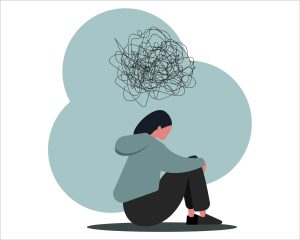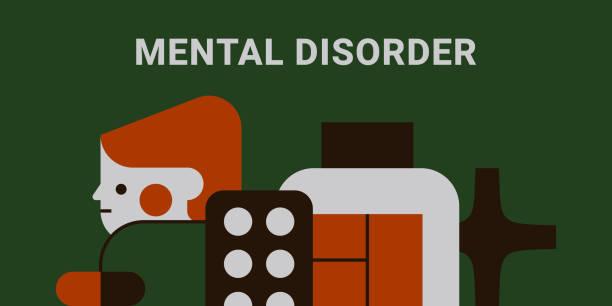Medication
Management
Every patient is unique, and so is their response to medication. As specialists in treating mental health conditions, our clinicians understand that each medication is also unique. Optimal medication management involves assessing an individual’s specific stressors, symptoms, physical condition, and lifestyle, including sleep patterns, physical activity, and diet. During your initial consultation, we will take the time to thoroughly understand you, allowing for more informed decisions regarding the most effective medications to treat your condition.
WE’RE ACCEPTING NEW PATIENTS: IN-PERSON & VIRTUAL APPTS
Request a Call Back
We are here to help
In addition to medication management, our specialists oversee other treatments provided to the patient, such as individual therapy, group therapy, telehealth, case monitoring, solution-focused brief therapy, behavioral therapies, acceptance and commitment therapy, and psychodynamic therapy.
What is Medication Management?
Medication management is essential for enhancing patient well-being. It adds an extra layer of accountability by assisting patients with adhering to their prescriptions and protocols, allowing them to focus solely on their recovery. This management involves outpatient evaluation and oversight of psychotropic medications used to treat adult mental health conditions such as anxiety, depression, bipolar disorder, ADHD, and others.
Patients often visit our clinic out of frustration after trying multiple medications without achieving effective relief from their symptoms. Some may feel hesitant to try a new medication or believe the only solution is to take additional medications to manage their condition. Additionally, some adults may be reluctant to retry medications that did not work for them in the past, even though they could now be beneficial.
Treatment recommendations may encompass various options, including but not limited to medications. At Quest Wellness Center, we provide care in an empathetic, non-judgmental, and supportive manner. We prioritize offering relief from mental health conditions with the fewest medications possible, helping you discover safer alternatives to high-risk medications. Our specialists conduct a comprehensive assessment for an accurate diagnosis and precise treatment of various psychiatric illnesses, including attention deficit hyperactivity disorder, mood disorders, anxiety disorders, psychotic disorders, attention disorders, insomnia, and other mental health conditions.
Common Reasons for Medication Analysis
- Affordability: Are you unable to take your required dosage or are you skipping doses because your medication is too expensive? At Quest Wellness Center, we can help you find a more affordable solution, such as generic medications or alternatives that are less costly.
- Accessibility: Once we establish your medication management plan, we will work with you to ensure your medications are refilled when and where you need them. This is particularly helpful for those who may have difficulty getting to the pharmacy or who frequently travel.
- Medication Regimen: Patients can sometimes feel overwhelmed by the number of medications they take. Our medication analysis includes a thorough review of each medication to identify ways to simplify your daily regimen, which may involve gradually eliminating unnecessary medications and supplements.
- Side Effects: Some patients skip doses or stop taking their anxiety, depression, or ADHD medication due to side effects. Rather than skipping doses, let us help you find mental health medications that effectively address your condition with fewer or no side effects. Even if your current medication and dosage seem to be working well, we can explore safer alternatives to controlled substances and other high-risk medications. These medications are often indicated for short-term use but can become part of a patient’s daily regimen, potentially leading to chemical dependency. Replacing high-risk medications with safer options can provide similar relief without the associated risks.
Five Things to Know About Medication Management
Mental health has long been a source of misunderstanding, fear, discrimination, and injustice. As mental health professionals, we take our roles as advocates very seriously. Medication management—using medication to treat symptoms of mental illness—is one of the most stigmatized areas in mental health. The more we understand, the less we fear!
- **How Our Bodies Function** It’s important to understand that our bodies function according to their physical design. Research indicates that changes in personality resulting from medication management are often linked to a reduction in symptoms and are usually positive, provided the medication is appropriate. Imagining a life free from the constraints of mental illness can be daunting; when you’ve struggled for so long, it’s easy to become too familiar with your symptoms because they feel safe and comfortable. However, we are not defined solely by our brains. While our brain functions affect us, they do not define who we are.
- **Medication is Not a Sign of Weakness** There is nothing weak, weird, or abnormal about needing medication. Many people express self-criticism for “depending on a pill” to feel “normal.” We live in a culture that demands total control over our thoughts, behaviors, and accomplishments. When faced with something uncontrollable, like a mental disorder, individuals often blame themselves for not being able to feel better. It’s important to remember: “Everyone depends on a healthy flow of neurotransmitters to function and thrive. Everyone needs the right balance of serotonin, dopamine, norepinephrine, adrenaline, etc., to lead fulfilling lives. Some brains produce these chemicals naturally; others require assistance, just as some bodies need insulin and others do not. If someone were in your position, they would also need extra neurotransmitters.”
- **Individual Responses to Medication Vary** Mental health medications are not an exact science. Since no two bodies function the same way, medications can affect individuals differently. The key to managing medication is patience and persistence. Just because your neighbor had a rapid, positive response to an antidepressant does not mean you will have the same experience; likewise, your coworker’s negative experience with anti-anxiety medication does not predict your outcome. If your medication isn’t working, it doesn’t mean you’re a failure. Finding the right combination of medications can take months and requires collaboration with your prescribing doctor. Be open about your needs during this process.
- **Importance of Mental Health Support** Be cautious of prescribers who do not emphasize the value of mental health support. Research shows that medication alone is often insufficient for managing mental health symptoms. Unfortunately, some prescribers may write prescriptions without ensuring follow-up care from a mental health professional. Monitoring is essential to determine if your medication is effectively addressing your symptoms. A mental health professional can help track changes, provide insight into side effects, and facilitate communication with your prescriber about your needs. Since some mental health medications can have serious side effects, it’s crucial to have someone assist you in monitoring your reactions to these medications until you feel safe.
- **Medication is Not a Quick Fix** It’s a misconception that medication provides an “easy fix.” Many people feel upset or frustrated when their mental health medication does not completely eliminate their symptoms. While medications can alleviate some distress associated with mental illness, they do not equip you with the coping skills and education necessary to make lasting changes to your lifestyle and environment. Medication does not take you directly to the finish line; it merely positions you at the starting line.
People often develop certain lifestyle adaptations to cope with mental health struggles and to compensate for deficiencies in their lives that result from these issues. Over time, cognitive and behavioral patterns become habitual, leading to the rewiring of neural pathways that reinforce these behaviors. Fortunately, counseling is available to help individuals unlearn these old coping mechanisms and adopt healthier, more adaptive strategies.
While seeking regular counseling requires more effort than just visiting a doctor every six months for a prescription refill, it is essential for achieving meaningful and lasting change.
Medication Management Therapy (MMT) is a treatment approach used by prescribers to establish long-term medication plans. It focuses on evaluating and monitoring the effectiveness and safety of prescribed medications. The five components of Medication Management Therapy are:
- Medication Therapy Review (MTR)
- Personal Medication Record (PMR)
- Medication-Related Action Plan (MAP)
- Documentation and Follow-Up
- Intervention and/or Referral
Managing one’s own thoughts and behaviors can be challenging, especially when experiencing mental health difficulties. Therefore, the goal of MMT is not only to improve quality of life but also to help individuals regain their footing. This allows them to concentrate on what is truly important, such as relationships and family, while entrusting medication decisions to qualified professionals.
Why People Choose Quest Wellness Center

Mental Health & Addiction

Co-occuring Disorders

Individual Care

Experienced Staff

Morning, Afternoon & Night Track

Case Management

Safe Environment

Supportive Community

Most Insurance
Top-rated mental health & addiction treatment IOP and PHP programs in Los Angeles, California
Mental Health and Addiction Care: Covered by insurance, In-Person Intensive Outpatient Programs (IOP) and Partial Hospitalization Programs (PHP) with Online Options Accessible

Verify Your Insurance
We accept almost all private and commercial insurance plans. Verify your coverage now!
All inquiries are kept confidential.
